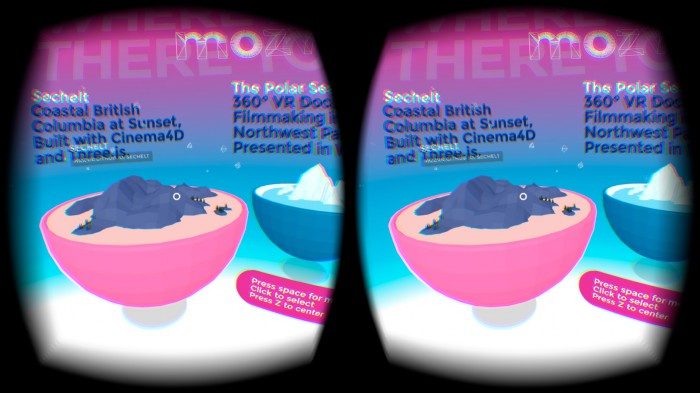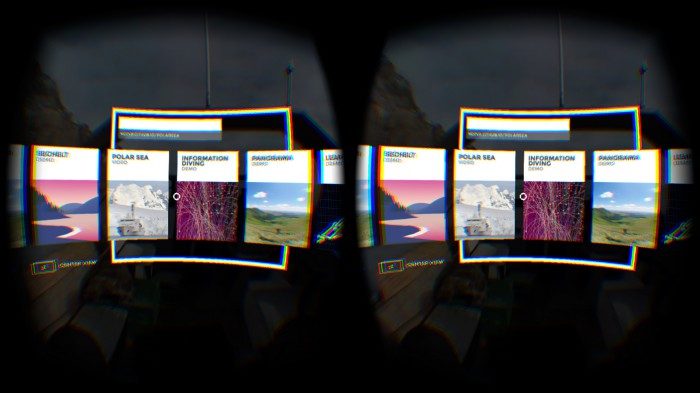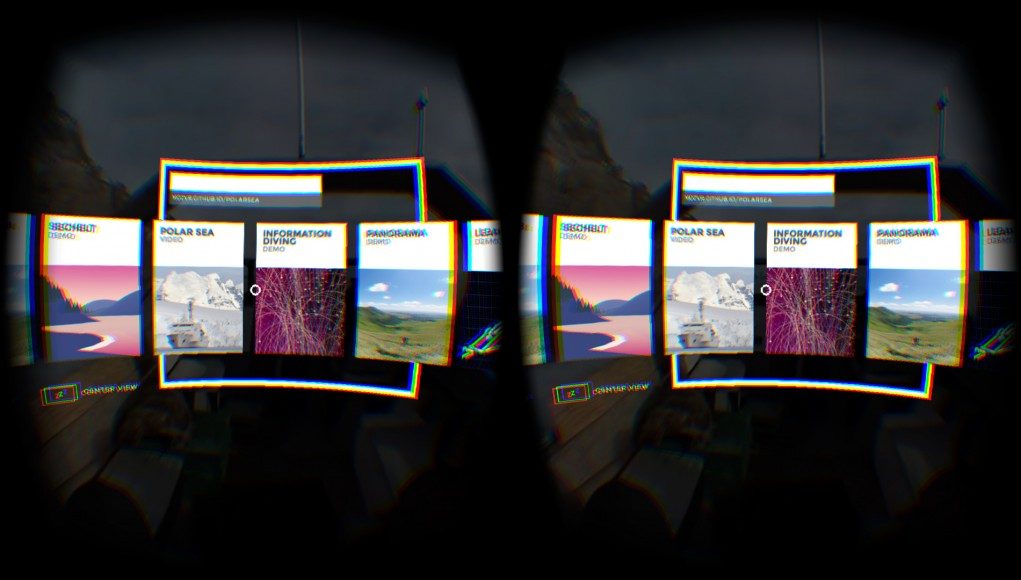
Earlier this year Mozilla began exploring virtual reality capabilities for the web. Now, they have released MozVR.com, which they call “a VR website about VR websites,” in celebration of the 10th anniversary of Firefox. It uses a virtual reality enabled version of Firefox that can navigate seamlessly through VR worlds built and hosted on the web.
VR Web Surfing
The MozVR website says that the “menus and loading indicators appear as unobtrusive layers that wrap the experience and are easily summoned or dismissed.” With each click of a link, one is teleported from one experience to the next using the Oculus Rift. Moving from site to site is possible without friction as each VR world dissolves into another one. There are no plugins, installations, or interruptions—provided you’re using a VR-enabled build of Firefox or Chromium.
See Also: Firefox Gets VR API For Browser-based Virtual Reality, Early Developer Examples Emerge

A couple of demos are already available. An example includes a project called Sechelt that was made with Ricardo Cabello (aka Mr.DOOB). It is a beautiful fly-through of the coast of British Columbia. Another experience titled Information Diving is described as “a visualization of data as art inspired by the work of artist Tatiana Plakhova.” There is also VR Web demo that can be controlled with Leap Motion, as well as an episode of Talk Chat Show Thing, which Mozilla says is the first ever talk show filmed exclusively in virtual reality.
All that is needed to start exploring the virtual online world is an Oculus Rift and a custom build of Firefox. A few configurations tips are available to help users get the experience working. The Mozilla Research VR team has also uploaded the code to github so eager developers can start experimenting with early demos, boilerplate scenes, and more.
“We are using the Rift as our initial test and development device, but are committed to device-agnostic Web VR, with support for additional devices coming soon,” writes the Mozilla Research VR team.
This release is surely a step forward for web-based VR development, which leaves us wondering what developers will create for this platform next.







